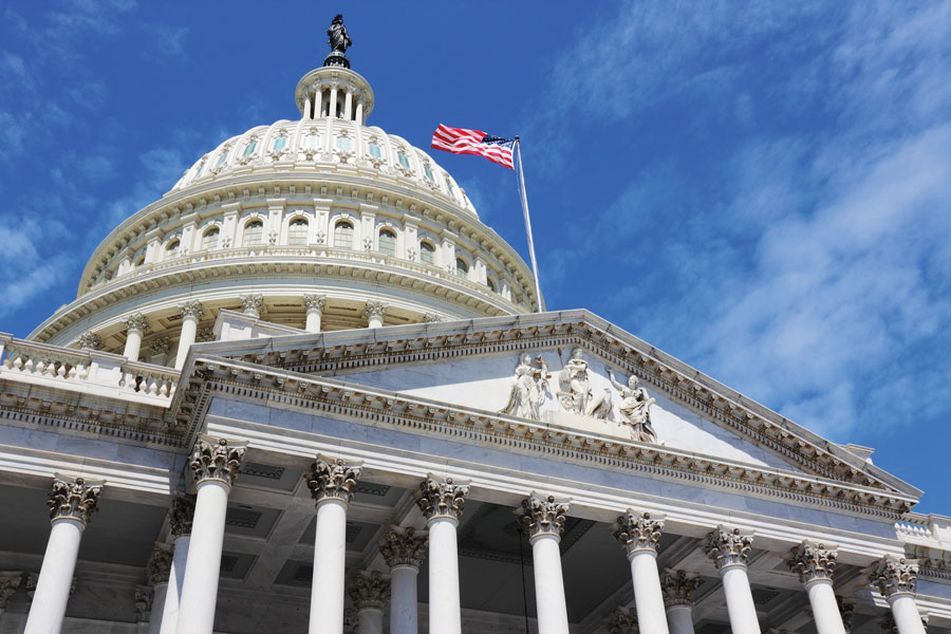Democrats offer `Medicare for All’ bill to transform health care

Measure would replace almost all private health insurance.
A leader of House Democrats’ progressive wing introduced “Medicare for all” legislation Wednesday that would replace almost all private health insurance, an idea that’s galvanizing the party’s liberal base and winning endorsements from many of its top presidential contenders.
The measure by Progressive Caucus co-chair Pramila Jayapal would steer all Americans — not just those 65 and older — into the Medicare program in two years. It would cover comprehensive health-care services and, in a radical departure from the existing system, limit private insurance to benefits not provided by the government-run program.
“The state of our health-care system is absolutely atrocious,” Ms. Jayapal of Washington told reporters on a conference call Tuesday. “Americans are literally dying because they can’t afford insulin or they can’t get the cancer treatment they need. Americans are going bankrupt.”
She unveiled the 120-page Medicare for All Act of 2019 at a Capitol news conference Wednesday with 107 co-sponsors, after saying she received assurances from Democratic leaders that the Budget Committees would hold hearings on it.
The measure would eliminate all premiums, deductibles and co-pays while guaranteeing universal health-care access to “every person living in the United States,” according to Ms. Jayapal’s office. She said combining all coverage into one program would cut administrative costs and let Medicare set doctors’ fees and negotiate drug prices.
Ms. Jayapal didn’t say how much it would cost or how it would be funded, but she floated options such as new taxes on upper incomes, wealth and corporations, as well as requiring employers to pay into the system. While the bill would boost the government’s tab on health care, Ms. Jayapal said that overall U.S. spending on health services would fall.
Health insurers led declines among health-care stocks Wednesday as investors turned their focus to the Medicare for all proposal. The S&P 500 Managed Health Care Index plunged as much as 4.9%, the most since Dec. 6, led by UnitedHealth Group Inc., Humana Inc. and WellCare Health Plans Inc. The broader health sector index fell 0.8%.
Presidential contenders
A small private insurance market for services not covered by Medicare for all wouldn’t receive any federal funding under Ms. Jayapal’s plan.
Democratic presidential contenders who support the idea of Medicare for all include five senators — Vermont’s Bernie Sanders, Massachusetts’s Elizabeth Warren, New York’s Kirsten Gillibrand, New Jersey’s Cory Booker and California’s Kamala Harris — as well as Julián Castro, a former cabinet secretary in the Obama administration. Candidates are being quizzed about the issue on the campaign trail.
Ms. Harris drew applause Saturday at a town hall in Ankeny, Iowa, when she touted Medicare for all as a mechanism to cut costs on emergency room visits by people who currently lack coverage. She said it would also let the government take on drug companies that “dictate prices” to make money.
“The pharmaceutical companies have been gouging us, guys,” she said. “With Medicare for all, when fully achieved, everyone would be in the system and then we can negotiate as a big group against the pharmaceutical companies to bring down those prices.”
Not all Democratic presidential contenders endorse the idea. Minnesota Sen. Amy Klobuchar, who portrays herself as a pragmatist, said at a recent CNN town hall that Medicare for all “could be a possibility in the future” but she doesn’t view it as realistic now.
(More: Medicare enrollment: Prepare or pay the price)
No realistic chance
For now, Medicare for all has no chance of becoming law in a divided Congress. Democrats control the House but Speaker Nancy Pelosi and a number of party moderates are resisting the idea. On Tuesday, one of her deputies, Hakeem Jeffries of New York, kept his distance from the proposal, saying the Democratic caucus supports universal coverage but wants to focus on strengthening the 2010 Affordable Care Act and lowering drug costs.
Even if it passed the House, the proposal would be doomed in the Republican-controlled Senate. President Donald J. Trump has defended Medicare but argued Medicare for all would have a disastrous impact.
He said in an October USA Today op-ed that the Democrats would “gut Medicare with their planned government takeover of American health care.” He said single payer would put doctors and hospitals out of business and create “long wait lines for appointments and procedures.”
Americans favor the idea of “national health care, sometimes called Medicare for all” by a margin of 56% to 42%, according to a January 2019 poll by the nonpartisan Kaiser Family Foundation. But public opinion fluctuates dramatically depending on what respondents hear about it. When told it would guarantee health insurance as a right, 71% support the idea; but when told it would eliminate private insurers or that it’d require most Americans to pay more taxes, just 37% support it.
Perhaps the greatest political danger for Democrats is that Medicare for all would disrupt coverage for about 156 million Americans who get their insurance from an employer. The proposal would face fierce objections from the health-care industry, including doctors, insurers and pharmaceutical companies.
Ms. Jayapal said skeptical Americans will come around to Medicare for all when told they’ll still have access to their preferred doctors and hospitals under the government-run plan.
“People are not saying they’re dying to have health insurance companies in their lives,” she said.
(More: 2019 Medicare and Social Security changes)
‘So much unknown’
Brian Marcotte, president of the National Business Group on Health, which represents large employers, said, “There are so many questions about this, so it’s really hard to take Medicare for all seriously when there’s so much unknown about how you would make this transformation and actually make it work.”
The American Medical Association, the doctors’ organization that supported the Affordable Care Act, said in a statement that it is “opposed to Medicare for all based on a mountain of evidence about the cost, counterproductive disruption, and degradation of choice, quality and innovation that Americans deserve and want.”
For-profit, publicly traded health insurers employ more than a half million people in the U.S. The companies’ combined stock market value is worth more than one-half trillion dollars, according to data compiled by Bloomberg.
Insurance companies including UnitedHealth Group, Anthem Inc., Humana and CVS Health Corp.’s Aetna unit do substantial business with the government. They contract with Medicare to provide health plans for more than 21 million beneficiaries who choose private Medicare Advantage plans. People who opt in to privately managed Medicare plans constitute more than one-third of Medicare’s total enrollment of about 60 million people.
(More: The black hole of financial planning: Health care costs)
75 million enrolled
Private companies and nonprofits also manage health plans for more than two-thirds of the 75 million people enrolled in Medicaid. Much of their business would be replaced by a government program that would bar private companies from selling coverage that duplicates government benefits, and prohibit employers from offering such plans.
Advocates of single-payer health coverage count on savings from eliminating insurance companies as intermediaries between patients and doctors. Government estimates put the administrative cost of private health insurance at $229 billion, less than 7% of the $3.5 trillion the spent on U.S. health care in 2017.
The issue promises to be a flashpoint in 2020 in states that will shape the presidential election, including Wisconsin. Democratic Sen. Tammy Baldwin, who won re-election by 10 points in that state in November while running on Medicare for all, said she looks forward to co-sponsoring the Senate version of the legislation.
“It very much excites me that we have one house of Congress that can elevate the discussion and the debate. It’s a huge leap forward,” Ms. Baldwin said Wednesday in an interview. “Once you can have hearings, there’s the possibility to refine and grow consensus and ultimately have movement on this.”
Learn more about reprints and licensing for this article.








